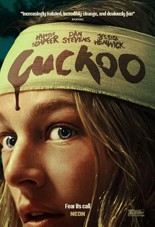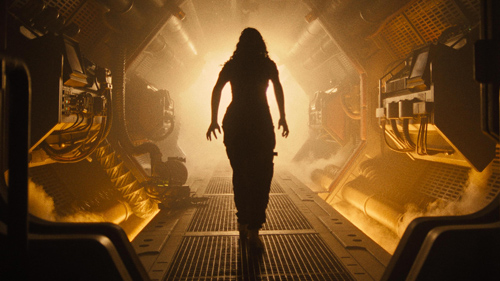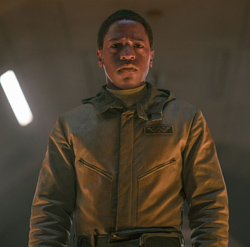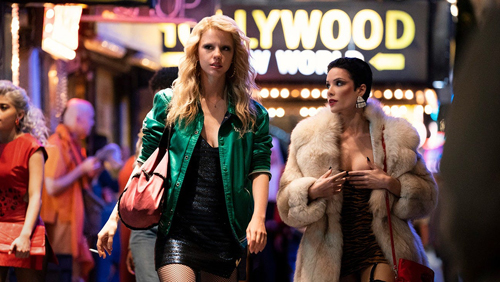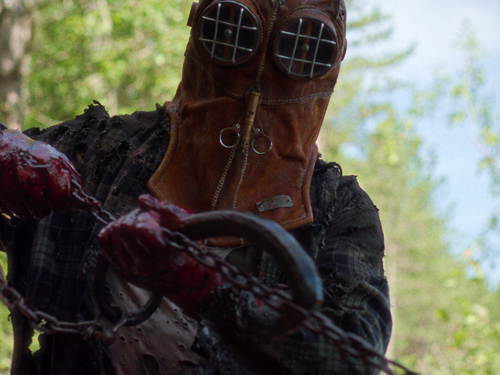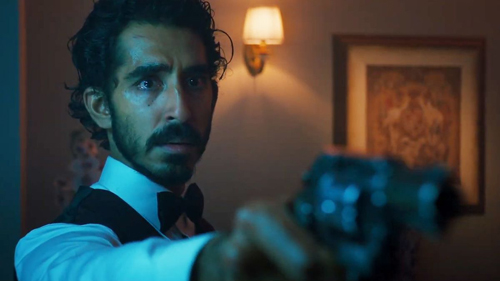
Who knew Hunter Schafer could take so much blunt-force trauma? Despite a comically constant battering throughout Tilman Singer’s Cuckoo, Schafer miraculously stands tall with standout performance. But a powerful lead isn’t enough to carry a film. Cuckoo flies the coop more than once, though it isn’t incoherent to a fault. Rather, it sort of circulates clarity, letting its mystery glide just enough to land on an ultimately satisfying place.
Gretchen (Schafer, Kinds of Kindness) finds little motivation in anything, save remotely practicing with her band, as her family relocates to a mountainside resort in Germany. Her dad (Marton Csokas, 2014’s The Equalizer) and stepmom (Jessica Henwick, Glass Onion) work for Herr (Dan Stevens, Abigail), the resort’s owner and a strange bird in his own right. Peculiar, overbearing employers become the least of Gretchen’s worries, however, as she’s relentlessly stalked by a bizarre “woman” wearing shades and trench coat.
Singer’s writing isn’t particularly coherent, though the big picture is never completely lost. Rather, it suffers from frequent detours that, while stylistic, tend to create more confusion than terror. Conceptually, the monster at the center of Cuckoo is intriguing, but Singer (Luz) can’t quite strike the balance between explanation and mystery. It’s like the filmmaker tried to delicately pull back the curtain, only to stumble and reveal a gaggle of puppeteers. It doesn’t ruin the film, but it also strangles the power its ambiguity could have had.
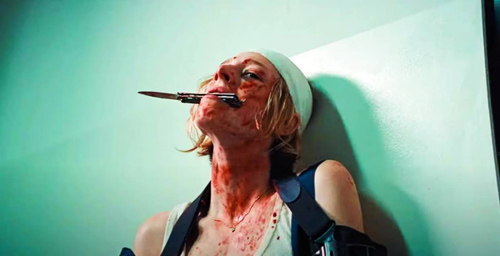
That said, the creature of this feature is secondary. Gretchen, firmly caught between grief and apathy, gives Cuckoo its legs. Schafer nails the malaise of late-stage adolescence, channeling a realistic portrayal without veering into just another whiny kid. Against Stevens and Luz star Jan Bluthardt’s increasingly deranged acting, Schafer serves as an anchor that allows every other character to go utterly off the rails. Without her establishing what’s normal, Cuckoo’s alluring strangeness would just be nonsensical.
What Singer could benefit from most, ultimately, is even just a basic amount of restraint. The film’s violence is mostly well-choreographed, but it doesn’t always feel earned. It often seems like Cuckoo is a compelling coming-of-age drama that has a weird contractual obligation to moonlight as a horror movie. (Though, admittedly, its cold opening does a decent job of keeping the thought of some malicious force at the back of your mind, sort of like the first scene of Valdimar Jóhannsson’s Lamb.)
This makes Cuckoo a bit difficult to qualify. On one hand, it more than establishes Schafer as a capable lead. With any luck, this won’t be her last appearance at the top of a cast. However, it probably won’t be for another one of Singer’s pictures. His premise is intriguing, but Cuckoo itself seems to be locked in an identity crisis that style and strong performers can’t manage to shake. If the director insists on remaining horror, they should rightfully keep swinging for the fences. Likewise, he’d be wise to remember that not every “high concept” needs to float in the stratosphere. We’ll receive him with open arms back on Earth. —Daniel Bokemper

